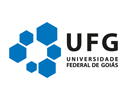Suggested Cost-free Online Sources for U.S. Politics and Foreign Policy

Fonte da imagem: rawpixel/123RF
By professor Wayne A. Selcher*
Although most scholars base their serious research largely on publications by fellow professionals (conference papers, articles, and books), many intellectually credible news and analytical sources are found on the Internet, without cost. Other, more partisan or committed sources provide perspectives on the points of view and actions of major political movements, parties, and individuals. Below is just a basic starter list and some tips that will be of considerable assistance to you in research on American politics and foreign policy, highlighting websites commonly and regularly used by American political scientists in their own research about the United States. Some offer much more information if you choose to subscribe, but also provide the option to sign up for free newsletters or apps. Most of these organizations also have an active social media presence.
American Foreign Policy
The most relevant pages from my WWW Virtual Library: International Affairs Resources Internet directory are those for American Foreign Policy, U.S. Government, and Research Institutes. The News Sources and Scholarly Papers pages may also be of interest. Most of the major sources in the diverse topics are linked and annotated here for regular research use, and are carefully selected for their cost-free, authoritative, and reliable information and analysis.
Teaching, Research, and International Policy (TRIP) from William and Mary College, “Strengthening the Links Initiative works to understand the relationship between IR scholarship and teaching, IR practiced by policymakers, IR views held by the public, and IR reporting and portrayal in the media.” The periodic TRIP surveys of academics in International Relations offer good insights into how these American specialists understand and interpret U.S politics and foreign policy.
American Politics Analysis and Commentary
The Annenberg Public Policy Center, at the University of Pennsylvania, analyzes “the challenges facing the three branches of government, the press, and the public schools,” with diverse projects including The Institutions of Democracy. Their annual Civic Knowledge survey “focuses on the public’s understanding of the Constitution of the United States.” Highly recommended.
Educating for American Democracy leads “an unprecedented effort that convened a diverse and cross-ideological group of scholars and educators to create a Roadmap to Educating for American Democracy— guidance and an inquiry framework that states, local school districts, and educators can use to transform teaching of history and civics to meet the needs of a diverse 21st century K–12 student body.” Their analysis focuses on identifying and resolving weaknesses in civics knowledge, including in the US public, that have become apparent in the events of recent years. Much information on the laws and functioning of the U.S. government.
Pew Research Center, U.S Politics and Policy is one of the very best places anywhere to find voluminous public opinion and attitude data and interpretation, including charts, graphs, and analysis, often in time series. Pew also covers U.S. foreign policy, religion, media and news, social trends, Hispanics and immigration, and other topics in an intellectually credible way. Also check their data-oriented Fact Tank. Very highly recommended for understanding the nature of and changes in U.S. society and political culture.
Gallup public opinion surveys are trustworthy measures of U.S. political opinions, attitudes, and social trends over time, with useful charts, graphs, and analysis.
FiveThirtyEight posts the latest political news, videos, and analysis in depth, with a somewhat pro-Democrat tilt. This site makes good use of Political Science findings and provides many useful references for further study.
The Conversation is “a nonprofit, independent news organization dedicated to unlocking the knowledge of experts for the public good. We publish trustworthy and informative articles written by academic experts for the general public and edited by our team of journalists,” with the support of a large number of universities and other organizations.
The Cook Political Report is “an independent, non-partisan newsletter that analyzes elections and campaigns for the US House of Representatives, US Senate, Governors and President as well as American political trends.” This is an excellent source on elections, but with the most thorough articles and reports reserved for subscribers.
The Bulwark is “a news network launched in 2018 dedicated to providing political analysis and reporting free from the constraints of partisan loyalties or tribal prejudices.” Offers free newsletters.
The Hill is a prestigious and widely-used news and analysis site with a great amount of thoughtful, objective content over a very broad range of issues. Highly recommended.
American Greatness “aims to be the leading voice of the next generation of American Conservatism,” as a thoughtful debating forum for re-thinking conservative philosophy and values without championing a particular political figure or party.
News Sources
American political polarization has definitely affected the news media, as organizations became committed to one side or the other and the country’s moderate political center has shrunken badly. Public skepticism about the objectivity and credibility of the established news media and distrust of “experts” and government has grown considerably, while social media facilitates the spread of false and misleading information. Manipulated or deepfake (ultrarealistic but totally false) videos now add to the confusion. News consumption by the public has been polarized according to party identity. Charges of “fake news” are leveled constantly against the mainstream media by Trump and his supporters, causing a counter-reaction by those so criticized.
Conservative and liberal news sources differ in what they consider important to cover (and focus on over time), whom they consider authoritative, and what meaning those stories have. And they also selectively ignore certain other stories or interpretations. It is therefore necessary to keep in mind the preferences and tendencies of any news and analysis source that you read. Below are the major organizations worthy of following, classified by their broad predominate political tendences in editorial content, what they choose to cover, whom they interview, wording, and how they interpret events, statistics, and trends (imparting positive vs. negative “spin”).
Basically Centrist News Organizations
AllSides displays “the day’s top news stories from the Left, Center and Right of the political spectrum — side-by-side so you can see the full picture.” Also provides Media Bias Ratings for a large number of American news sources and public intellectuals, however subjective, allowing you to “easily identify different perspectives so you can get the full picture and think for yourself.” The over 800 sources rated constitute a very helpful catalog of major U.S. news sources for you to peruse. Highly recommended.
Progressive-leaning News Organizations
The Washington Post – Its The Monkey Cage feature has insightful political commentary by political scientists. The paper is by subscription, but has considerable free content. Signing up for a free account gives you access to columnists, breaking news alerts, and daily e-mail alerts about headline news items in topics that you select from many options. Note the Opinions page for perspectives on current topics and trends.
The New York Times – The paper is by subscription, but has some free content. Signing up for a free account gives you access to columnists, breaking news alerts, and daily e-mail alerts about headline news items in topics that you select from many options.
Media Matters (Focuses on criticism of the right-wing media)
Right-leaning and Pro-Trump News Organizations
Fox News (The favorite of Donald Trump during most of his presidency)
Media Research Center (Focuses on criticism of the left-wing media and popular culture)
Fact-checking Sources
Because of the political polarization of conservative and progressive sectors in recent decades, including in public opinion and the mass media, fact-checking the claims of the “other side” or of the public debate in general has become a major endeavor since about 2016. Low levels of thoughtful “news literacy” have been a problem in U.S. public opinion. Emotional partisan distortions and conspiracy theories are used to capture attention and to generate revenue and votes. (For ongoing examples of right-wing conspiracy theories, see Infowars.) Forums have been initiated to explore the role of an accurately informed citizenry in a democracy, such as the Open Mind and the Center for an Informed Public.
The urgency for seeking “truth” in a highly conflictful public information flow was accelerated by the constant lying, misleading statements, and unusual style of President Donald Trump. The Washington Post Fact Checker team enumerated and documented over 30,000 “false or misleading claims” in his four years as president, now available in a downloadable database and a graphic. Most of the fact-checking sites listed below are rather objective, but my personal observation is that they tend, on balance, to investigate conservative statements more frequently than progressive ones (“liberal,” in American usage). That may be because of the long-standing somewhat progressive tendencies of the big-city-based mainstream media contrasted with the conservative media’s tendency to emulate Trump and to follow his lead and rhetorical style.
Snopes is one of the most widely-used sites of its type, “the internet’s go-to source for discerning what is true and what is total nonsense.”
Media Bias/Fact Check claims to be “the most comprehensive media bias resource on the internet,” ranking American media sources on degree of political bias on a left to right spectrum.
PolitiFact from the Poynter Institute fact-checks journalism and political figures of all parties with “independence, transparency, fairness, thorough reporting and clear writing.” Their PunditFact is “dedicated to checking the accuracy of claims by pundits, columnists, bloggers, political analysts, the hosts and guests of talk shows, and other members of the media.”
Washington Post Fact Checker aims to “truth squad” the statements of political figures regarding issues of great importance, be they national, international or local,” to find the “truth behind the rhetoric.”
Fact Check.org, from the Annenberg Public Policy Center of the University of Pennsylvania, is “a nonpartisan, nonprofit “consumer advocate” for voters that aims to reduce the level of deception and confusion in U.S. politics. We monitor the factual accuracy of what is said by major U.S. political players in the form of TV ads, debates, speeches, interviews and news releases.”
Media Matters for America is a critic of right-wing news media and reporting, a “progressive research and information center dedicated to comprehensively monitoring, analyzing, and correcting conservative misinformation in the U.S. media.”
Free E-mail Newsletters
Subscribing to e-mail newsletters from key relevant organizations is a good way to monitor the broader flow of events and to learn about newly available studies or perspectives of your interest, to follow up on even if you are not a subscriber to the organization’s products or services. Such activity is part of what librarians call professional “current awareness,” which is vital to keep up with developments in your field. Here are some examples in U.S. foreign policy.
U.S. Department of State (Subscribe on this page)
Center for Strategic and International Studies
Atlantic Council (Subscribe on home page)
Center for Transatlantic Relations
Stimson Center (Subscribe on home page)
Peterson Institute for International Economics
* Wayne A. Selcher, Ph.D. is Professor of International Studies Emeritus, Department of Politics, Philosophy, and Legal Studies, Elizabethtown College, PA, USA. His major academic interests are US foreign policy, Latin American politics and foreign policy (especially Brazil), and Internet use in international studies teaching and research. He is the creator and editor of the WWW Virtual Library: International Affairs Resources, a web guide for international studies research. E-mail: wayneselcher@comcast.net.
** Article received on April 1st, 2021. This article does not necessarily reflect the opinion of OPEU or INCT-INEU.





















